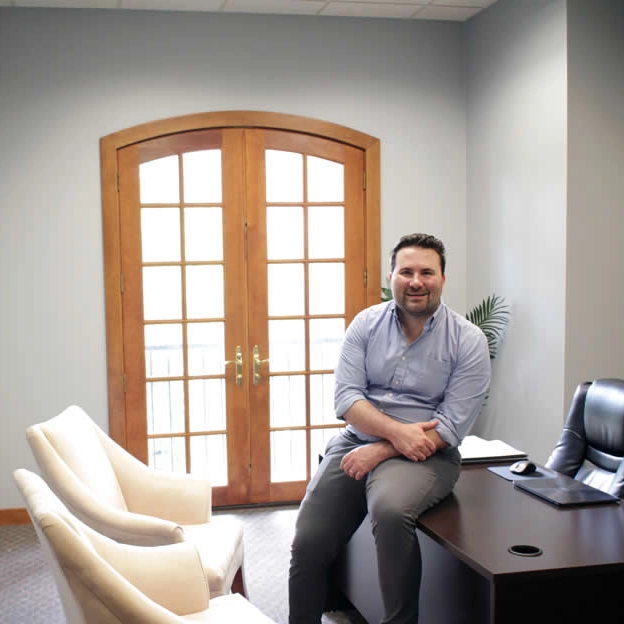
What is a Trust?
Of the most popular elements of Estate Planning is setting up Trusts. Having a Trust in place can help you maintain control over your assets and property while determining how to distribute them after your passing.
However, Trusts can be notoriously complex. Having an experienced Missouri Trust attorney helping you develop your Estate Plans can go a long way in ensuring your wishes are fulfilled as you intend after your death.
Do not hesitate to contact David S. Schleiffarth, LLC to schedule your initial consultation today. You can learn more about whether setting up a Trust is in your best interests, which types of Trusts to set up, and who to assign as your Trustee.
What's the Difference Between a Will and a Trust?
- Probate treatment – Property distributed through a Will is legally required to go through Probate court (expensive & time-consuming). Conversely, property held in a Trust at the time of your death avoids Probate.
- Longevity – A Will exists for a limited time. It distributes property upon your death, and that’s it. However, a Trust can manage and distribute assets for as long as you instruct (or your assets provide). For example, if you have minor children, they could have their needs addressed under the management of a Trustee. Likewise, you could have any distribution of funds withheld until your children reach a more suitable age.
- The breadth of purposes – Trusts can accomplish much more than a Will. Trusts are instruments with far-reaching abilities. For example, Trusts can protect beneficiaries from creditors, or they can preserve government benefits for beneficiaries with special needs. Trusts are powerful legal instruments that serve clients in various ways.
The Purpose of a Trust
A Trust is an Estate Planning instrument used to determine how your assets, real estate, and property will be distributed after your passing. Trusts are designed to reduce taxes and help your family avoid Probate upon your passing. With a Will, your family will likely need to put your estate through Probate Court. However, Trusts are under no such obligation.
Trusts are similar to a Will in that they determine how your assets and property will be disbursed to beneficiaries. However, Trusts take effect as soon as they are funded and signed, whereas Wills are only effective once the Grantor passes away.
Wills also include a wide variety of information, including Guardianship instructions and which estate assets will be passed to specific heirs and beneficiaries.
Avoid Probate!
Probate is a court-controlled process with mandatory fees based on the size of your estate. Missouri statutes set these fees. Even for small estates, forming a Trust is typically less expensive. Likewise, the Probate court usually requires hiring an attorney and jumping through many hoops. Probate can delay the distribution of your assets by several months to over a year. In short, Probate can be a headache. It is simpler and less expensive for most people to have a Trust formed.

What Are the Benefits of a Trust?
- Financial Savings. You avoid the costs and headaches of Probate.
- Peace of Mind. Provide for the long-term care of beneficiaries–particularly relevant for those with minor children, special needs family members, or elderly dependents.
- Privacy. Assets in a Trust discreetly transfer upon your death. Probate Court is a matter of public record.
- Freedom. You retain the ability to modify or eliminate the Trust.
- Flexibility. You can move property in and out of the Trust during your lifetime.
- Control of Assets. You maintain greater control over the distribution of your assets. For example, a Trust can provide beneficiaries maintenance for their basic needs while minors, then distribute portions of the principal gradually (e.g., 1/3 at age 21, 1/3 at 25, and 1/3 at 27) at a more suitable age.
Contact a Trust Attorney in St. Louis, Missouri for Help Today
Are you interested in learning more about whether your estate is a good fit for a Trust? If so, be sure to contact a dedicated Missouri Trust attorney at The Law Office of David S. Schleiffarth, LLC for an initial consultation.
You can find out more about whether you are a good candidate for a Trust, which type of Trust, and get help assigning a Trustee when you have our team working for you.
Schedule a no-obligation case review today by calling or texting our number, or completing our convenient contact form.
When You Should Have a Trust
Trusts are not a requirement as part of every Estate Plan.
However, if you have children with special needs, minor children, or have come into significant wealth, having a Trust is a good way for you to reduce your taxes, avoid Probate, and protect your assets for your children, grandchildren, and even your great-grandchildren.
Types of Trusts
There are multiple types of Trusts that could be a good fit for your Estate Plans and your family’s needs. Some options include:
Family Trusts
Also commonly referred to as Trust Funds, Family Trusts are designed for minor children, spouses, and beneficiaries with spendthrift issues. Family members named as beneficiaries can have access to the assets contained within the Trust based on the specific instructions provided.
This might include restrictions on when beneficiaries can take distributions, what distributions can be used for, and more. The cost of a Family Trust can vary widely depending on your specific financial situation and how much you want to put into the Trust.
Living Trusts
There are two primary types of Living Trusts: Irrevocable Living Trusts and Revocable Living Trusts. With Irrevocable Living Trusts, you cannot make changes to the Trust at any time, and you lose control over the assets contained within the Trust. However, they come with additional tax breaks and can protect your beneficiaries.
Revocable Living Trusts allow you to maintain control over the contents of the Trust and can be amended at any time. You can make a Living Trust by:
- Deciding which assets to include
- Going over which type of Living Trust is best for you with your attorney
- Deciding who will act as your Trustee
- Selecting and designating beneficiaries
- Getting documents drafted and notarized
- Funding the Trust
QTIP Trusts
Qualified Terminal Interest Property (QTIP) Trusts are used when one spouse wants to leave assets to the surviving spouse to be used for the surviving spouse’s lifetime. However, the surviving spouse must also preserve the assets for additional beneficiaries, such as their surviving children. There are some restrictions to QTIP Trusts, including:
- You cannot give Trust assets away
- Trust Assets cannot be left to other beneficiaries through a will
- You cannot sell trust assets
Surviving spouses have the right to the income produced by QTIP Trust assets. However, once the surviving spouse passes away, any remaining assets contained within the QTIP go to the ultimate beneficiaries. This helps protect businesses through succession and blended families from the risks of disinheritance.
Can You Have a Trust Without a Will?
Yes, you can have a Trust without a Will. However, without a Will, there may be many problems your family could face, including the potential for your Trust to become subject to Missouri intestacy laws.
How to Select Your Trustee
Selecting your Trustee is not an easy decision to make. You need a Trustee who you can rely on to follow the instructions you have left. Your Trustee should be able to remain impartial, work well with beneficiaries, and have the time and availability to handle the responsibilities that come with being a Trustee.
Trustees will be responsible for administering the details of your Trust. You need to be able to trust them to act in your best interests. While Trustees do have a fiduciary duty to act in the best interests of the grantor and beneficiaries, it is not unusual for there to be conflict among beneficiaries and Trustees when Trustees make decisions beneficiaries do not agree with. Having Co-Trustees and Trust Protectors can help to ensure your Trust instructions are followed as intended.
Setting up Your Trust
If you are interested in setting up a Trust, you will first need to meet with your Trust attorney in Missouri to discuss your specific goals. This way, you can choose the right type of Trust. Here is what you can expect next:
- You will need to create the Trust and determine which assets are going to be transferred
- You will need to determine who will act as your immediate Trustee, Successor Trustee, Co-Trustees, and Trust Protectors
- You will select beneficiaries who will receive disbursements from your Trust as you describe in your Trust instructions
- Your Trust attorney will draft your Trust, get it signed before a notary, and ensure the Trust is funded to become active

How a St. Louis Trust Attorney Can Help You
Having a Trust attorney in Missouri working for you can help is your concerns and help to ensure you understand every detail of your estate. When you have children with special needs, have a high net worth, or have complicated instructions for how your beneficiaries should receive assets upon your death, having a Trust attorney working for you to craft your Trust documents will be a top priority.
Your Trust attorney can also act as a Co-Trustee or Trust Protector to help ensure your instructions are carried out as you wished and described in your Trust documents. Additionally, your Missouri Trust lawyer will also be able to handle any estate or Trust issues that may arise if beneficiaries wind up in a dispute with Trustees or if there are other complications.
Contact Us Now
Call, text, or email to speak to an attorney!